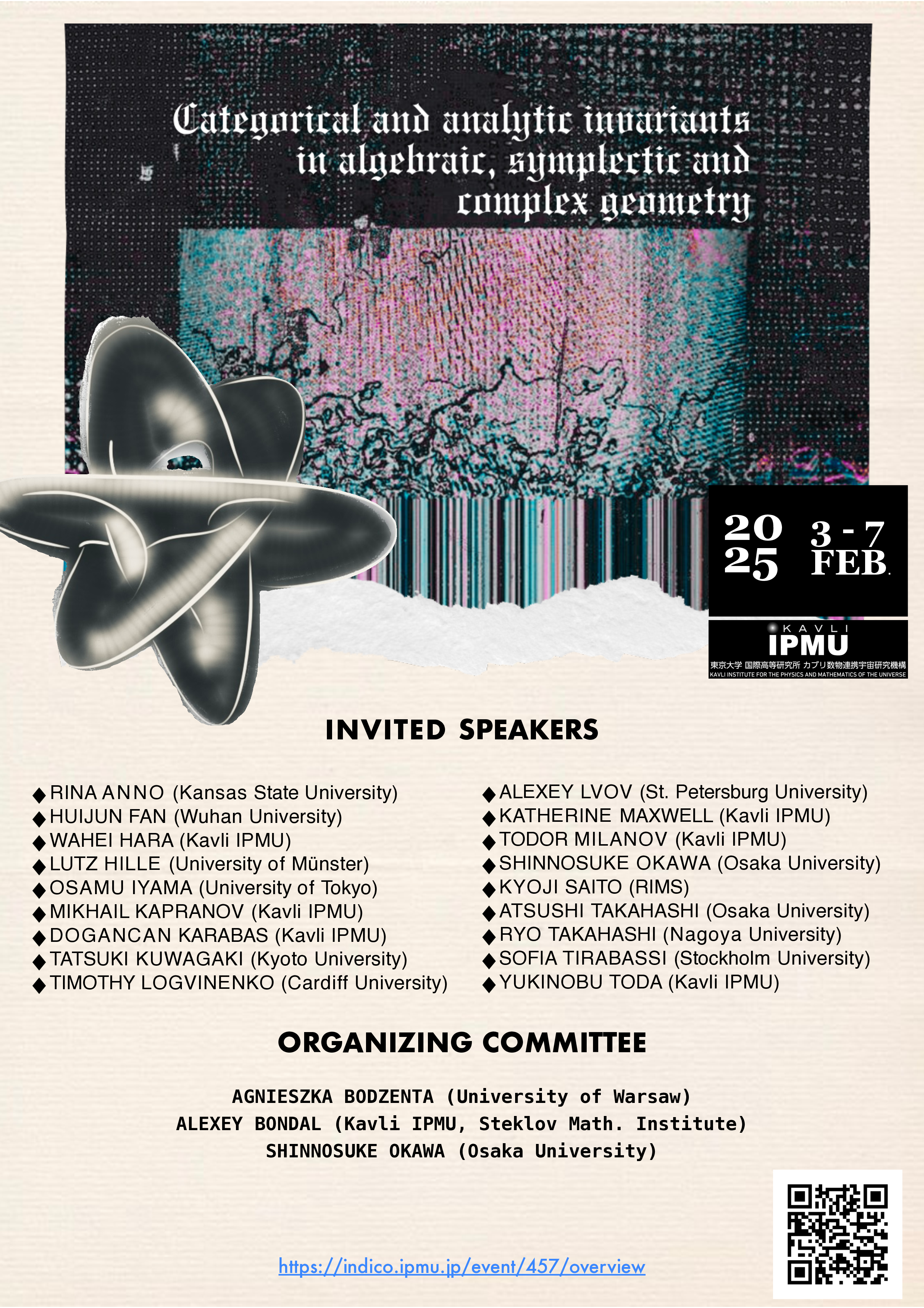Categorical and analytic invariants in algebraic, symplectic and complex geometry
Lecture Hall
Kavli IPMU
*Update(2nd Feb.): The program for Mon. and Tue. has been partially changed.
Dates: February 3 - 7, 2025
Venue: Kavli IPMU, Lecture Hall
Overview:
The goal of the conference is to gather the world leading experts and young scientists working in various areas of geometry and related algebra. The aim is to boost the interaction of mathematicians working in algebraic, symplectic and complex geometry by categorical and analytic methods in order to transfer ideas between these areas of geometry, using category theory as the unifying tool. Mirror Symmetry, originated in QFT and developed by mathematicians as a deep relation between complex and symplectic geometries, is clearly the guiding thread in this activity. The extension of the categorical description to non-commutative algebraic geometry will also be one of the focuses of the conference.
Time schedule:
Click here.
Invited speakers:
- Rina Anno (Kansas State University)
- Huijun Fan (Wuhan University)
- Wahei Hara (Kavli IPMU)
- Lutz Hille (University of Münster)
- Osamu Iyama (The University of Tokyo)
- Mikhail Kapranov (Kavli IPMU)
- Dogancan Karabas (Kavli IPMU)
- Tatsuki Kuwagaki (Kyoto University)
- Timothy Logvinenko (Cardiff University)
- Alexey Lvov (St. Petersburg University)
- Katherine Maxwell (Kavli IPMU)
- Todor Milanov (Kavli IPMU)
- Shinnosuke Okawa (Osaka University)
- Kyoji Saito (RIMS)
- Atsushi Takahashi (Osaka Univeristy)
- Ryo Takahashi (Nagoya University)
- Sofia Tirabassi (Stockholm University)
- Yukinobu Toda (Kavli IPMU)
Organizing Committee Members:
- Agnieszka Bodzenta (University of Warsaw)
- Alexey Bondal (Kavli IPMU, Steklov Math. Institute)
- Shinnosuke Okawa (Osaka University)
Address:
Kavli Institute for the Physics and Mathematics of the Universe (Kavli IPMU),
the University of Tokyo, 5-1-5 Kashiwa-no-ha, Kashiwa City, Chiba 277-8583, Japan
